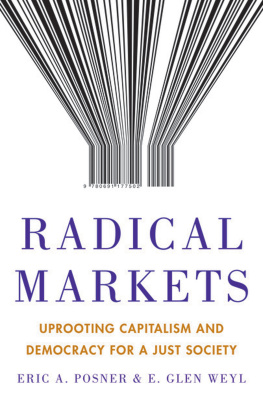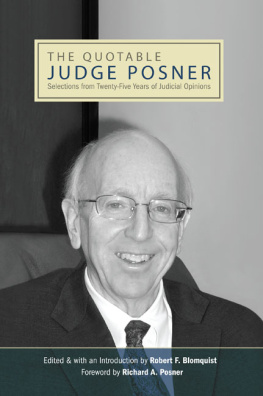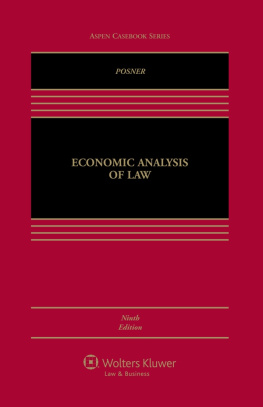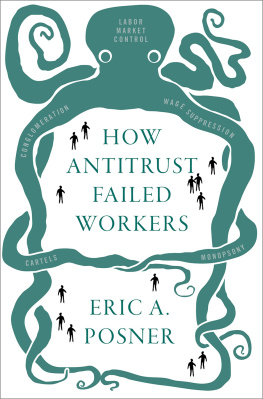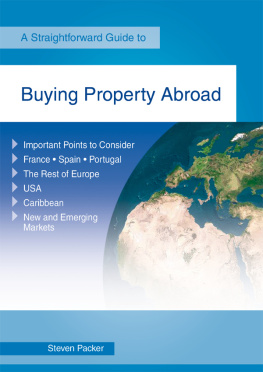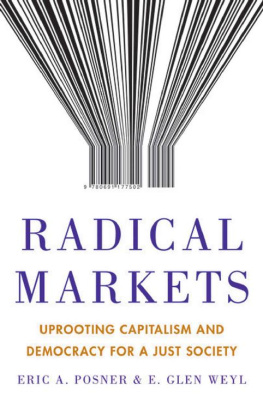Posner - RADICAL MARKETS: why we should upend property and democracy for the sake of the future
Here you can read online Posner - RADICAL MARKETS: why we should upend property and democracy for the sake of the future full text of the book (entire story) in english for free. Download pdf and epub, get meaning, cover and reviews about this ebook. year: 2018, publisher: Princeton University Press, genre: Politics. Description of the work, (preface) as well as reviews are available. Best literature library LitArk.com created for fans of good reading and offers a wide selection of genres:
Romance novel
Science fiction
Adventure
Detective
Science
History
Home and family
Prose
Art
Politics
Computer
Non-fiction
Religion
Business
Children
Humor
Choose a favorite category and find really read worthwhile books. Enjoy immersion in the world of imagination, feel the emotions of the characters or learn something new for yourself, make an fascinating discovery.
- Book:RADICAL MARKETS: why we should upend property and democracy for the sake of the future
- Author:
- Publisher:Princeton University Press
- Genre:
- Year:2018
- Rating:4 / 5
- Favourites:Add to favourites
- Your mark:
- 80
- 1
- 2
- 3
- 4
- 5
RADICAL MARKETS: why we should upend property and democracy for the sake of the future: summary, description and annotation
We offer to read an annotation, description, summary or preface (depends on what the author of the book "RADICAL MARKETS: why we should upend property and democracy for the sake of the future" wrote himself). If you haven't found the necessary information about the book — write in the comments, we will try to find it.
Posner: author's other books
Who wrote RADICAL MARKETS: why we should upend property and democracy for the sake of the future? Find out the surname, the name of the author of the book and a list of all author's works by series.
RADICAL MARKETS: why we should upend property and democracy for the sake of the future — read online for free the complete book (whole text) full work
Below is the text of the book, divided by pages. System saving the place of the last page read, allows you to conveniently read the book "RADICAL MARKETS: why we should upend property and democracy for the sake of the future" online for free, without having to search again every time where you left off. Put a bookmark, and you can go to the page where you finished reading at any time.
Font size:
Interval:
Bookmark:

RADICAL MARKETS
Radical Markets
Uprooting Capitalism and Democracy for a Just Society
Eric A. Posner and E. Glen Weyl
PRINCETON UNIVERSITY PRESS
PRINCETON AND OXFORD
Copyright 2018 by Princeton University Press
Published by Princeton University Press,
41 William Street, Princeton, New Jersey 08540
In the United Kingdom: Princeton University Press,
6 Oxford Street, Woodstock, Oxfordshire OX20 1TR
press.princeton.edu
Jacket design by Karl Spurzem
All Rights Reserved
ISBN 978-0-691-17750-2
Library of Congress Control Number: 2017964479
British Library Cataloging-in-Publication Data is available
This book has been composed in Adobe Text Pro and Gotham
Printed on acid-free paper.
Printed in the United States of America
10 9 8 7 6 5 4 3 2 1
To the memory of William S. Vickrey
CONTENTS
ACKNOWLEDGMENTS
Economic production and development are fundamentally social, not individual, processes, or so we argue throughout this book. Intellectual products such as this book are no different. The social milieus in which we developed and the wide range of communities to which we have belonged shaped our ideas and, if this book has the impact we aspire to, the zeitgeist will doubtless be far more important than our intellectual exertions. Yet there are many people among these broader forces who especially contributed to this work.
While we identify many of our most important intellectual influences in the course of the book, each of us had personal intellectual mentors who go less noted there, but merit our thanks. Gary Becker and especially Jos Scheinkman played critical roles in encouraging Glen to pursue his boldest ideas, despite the costs to his professional standing and the difficulty publishing this work. Jerry Green, Amartya Sen, and especially Jean Tirole were central to shaping Glens view of mechanism design as a force for social transformation. Jennifer Chayes, Glens supervisor at Microsoft, gave him the professional space, interdisciplinary environment, and personal inspiration he needed to believe in and pursue this project. Eric is grateful for the support of his colleagues at the University of Chicago, and to the Russell Baker Scholars Fund for financial support. Glen is grateful to the Alfred P. Sloan Foundation for financial support through his fellowship.
We owe a special debt to Soumaya Keynes, whose interest in and enthusiasm for the merging of our various ideas helped stimulate us to write this book.
The many co-authors and collaborators on projects that contributed to our vision here are cited throughout, but a few deserve explicit mention here: Anthony Lee Zhang pioneered the idea of the common ownership self-assessed tax with Glen; Steve Lalley proved the fundamental theorems about Quadratic Voting with Glen, and Nick Stephanopoulos together with Eric devised the practical vision of egalitarian election law based on it; Fiona Scott Morton devised the 1% rule for institutional investors with us; and Jaron Lanier has been Glens partner every step of the way in Data as Labor.
Our editor Joe Jackson and his colleagues at Princeton University Press made this book a reality. Susan Jean Miller did a superb job helping us hone our prose. We are also grateful to a talented team of research assistants. Graham Haviland, Eliot Levmore, Stella Shannon, Han-ah Sumner, and Jill Rogowski provided invaluable assistance.
A conference on our manuscript hosted by the Cowles Foundation at Yale University and supported enthusiastically by its director Larry Samuelson helped shape our thinking. Seven discussants (Ian Ayres, Dirk Bergemann, Jacob Hacker, Nicole Immorlica, Branko Milanovic, Tim Shenk, and Matt Weinzierl) provided us vital feedback. Tim was particularly helpful in shaping our understanding of the relevant history of ideas. We also received comments from many friends and colleagues, including Anna Blender, Charlotte Cavaille, Patrick Collison, Adam Cox, Richard Eskow, Marion Fourcade, Alex Peysakovich, Greg Shaw, Itai Sher, Steve Swig, Tommaso Valetti, and Steve Weyl. Steph Dick and Chris Muller provided thought-provoking reactions that shaped our revisions. Richard Arnott, Bill Vickreys archivist, shaped our understanding of his ideas and beliefs. Dionisio Gonzalez, Tod Lippy, and Laura Weyl supported us in thinking through the aesthetics of the book. We also appreciate the collaboration of the members of the Radical Economics and Social Life of Data reading groups at Microsoft, especially Nicky Couldry, Dan Greene, Jessy Hwang, Moira Weigel, and James Wright.
Encouragement from Satya Nadella and Kevin Scott, business leaders at Microsoft, and Atif Mian and Ken Rogoff from the academic side, has also been important to the development of this work.
Glen is grateful to his wife, Alisha Holland, more than anyone. She suffuses this book from start to finish; as only she will recognize, this book doubles as a sort of love letter. She was the one who brought Glen to Rio and got him thinking about favelas, and it was she who encouraged him to develop the ideas of the epilogue. The spirit of the city and the migrant, and the passion to improve the lot of both, that animate so much of our work come from her. Glen and Alishas two-person writing group transformed much of our writing. Without Alishas support of Glens professional risks and iconoclasm he would not have dared write this book; without the empathy and appreciation for beauty she taught him, he never could have had the vision to do so. Every day Glen discovers more how interwoven and inseparable their ideas and emotions are. Building that bond, starting as isolated and nerdy adolescents, has not always been easy or comforting. But just like a society, a partnership that can radically reform itself in the face of crisis, and thus foster rather than constrain equality, growth, and cooperation, is a partnership that deserves to last.
PREFACE
The Auction Will Set You Free
The nineteenth-century liberal was a radical, both in the etymological sense of going to the root of the matter, and in the political sense of favoring major changes in social institutions. So too must be his modern heir.
MILTON FRIEDMAN, CAPITALISM AND FREEDOM, 1961
The seed of this book was planted during a summer one of us spent in Rio de Janeiro. Rio is the most naturally beautiful city in the world. Lush tropical hills, which roll down to an island-laden bright blue bay, afford unrivaled views. Yet these same hills are covered with favelas, squalid jerry-rigged slums that lack basic sanitation and transportation.
Leblon, possibly the wealthiest neighborhood in all of Latin America, lies at the base of the hills. There your money can buy, at wildly inflated prices, the luxury watches and cars that are leading status symbols. Yet the citizens of Leblon dont dare wear their watches on the street, nor stop their cars at red lights at night, for fear of the violence looming from the favelas above. Rio is one of the most dangerous cities in the world.
Cariocas, as the people of Rio call themselves, are relaxed, kind, creative, and open. They perceive race more subtly than we do in the United States, with our sharp line between white and black. Both countries have long histories of slavery, but in Brazil, everyone is of mixed heritage. Even so, variations in skin tone convey gradations of class, an omnipresent force in Brazilian society.
Economically, Brazil is the most unequal country in the Western hemisphere. While it overflows with natural abundance, a few families control much of its wealth and almost 10% of Brazilians live below the global poverty line. The last president was ejected for abusing her power, her predecessor is in jail for corruption, and corruption investigators are closing in on the current leader, whose approval rating is in single digits. He will probably be jailed by the time this book is published. Living standards in the country have stagnated for long periods. Entrepreneurship is sparse.
Next pageFont size:
Interval:
Bookmark:
Similar books «RADICAL MARKETS: why we should upend property and democracy for the sake of the future»
Look at similar books to RADICAL MARKETS: why we should upend property and democracy for the sake of the future. We have selected literature similar in name and meaning in the hope of providing readers with more options to find new, interesting, not yet read works.
Discussion, reviews of the book RADICAL MARKETS: why we should upend property and democracy for the sake of the future and just readers' own opinions. Leave your comments, write what you think about the work, its meaning or the main characters. Specify what exactly you liked and what you didn't like, and why you think so.

